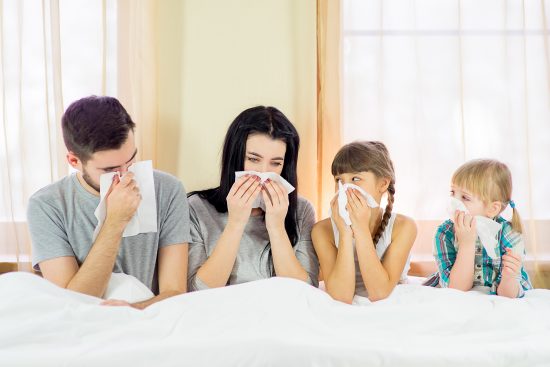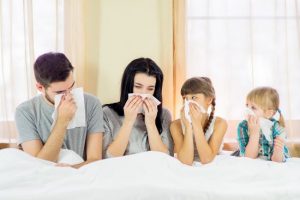

With the Centers for Disease Control (CDC) reporting that approximately 19.2 million adults and 5.2 million children were diagnosed with hay fever in the last 12 months, it would be of little surprise should you or a loved one start to sneeze and sniffle with the turn of the season.
Luckily, prepping your home for fall doesn’t have to be a difficult undertaking.
Here’s what you need to know about why autumn allergies can be so strong, as well as how to prevent them from following you home:
Understanding Fall Allergies
When your immune system sounds a false alarm to a foreign substance (like pollen or pet dander), that’s when allergy symptoms like congestion and dry eyes manifest. And for some, the autumnal season might simply trigger the immune system more frequently.
But why?
For those of us living in Northeast Florida and Southern Georgia — or even elsewhere along the Atlantic Coastline — the answer is often ragweed.
“The most common culprit for fall allergies is ragweed, a plant that grows wild almost everywhere, but especially on the East Coast and in the Midwest,” according to the American College of Allergy, Asthma, and Immunology (ACAAI). “Ragweed blooms and releases pollen from August to November. In many areas of the country, ragweed pollen levels are highest in early to mid-September.”
Allergy-Proofing Your Home
Just because you can return to the refuge of your home at the end of the day, don’t think that shutting the front door behind you is all it takes to hold fall allergens at bay.
Pollen and other allergy-inducing particles can easily follow you inside, catching a ride on your clothes, shoes, or even your hair. That’s why we recommend improving your indoor air quality and allergy-proofing your home by …
- Leaving your shoes at the door when you come inside.
- Vacuuming once or twice a week.
- Using a dehumidifier to reduce mold-inducing moisture.
- Closing doors and windows, as well as checking them for cracks and air leaks.
- Replacing carpeting with tile or wood.
- Installing a HEPA air filter.
But when all else fails, the Asthma and Allergy Foundation of America (AAFA) recommends keeping allergy medication with you at all times if your reactions are severe and sensitive enough.
When It’s Beyond Simple Allergens
If your over-the-counter allergy medications aren’t providing you the relief you need, your fall allergies may not be the culprit. In fact, other airborne contaminants — including mold or volatile organic compounds — could be the source of your upper respiratory woes.
But if you’re not sure what, exactly, may be in your home, then it’s time to call Luce Air Quality, your indoor environmental experts!
With over 11 years of experience in the restoration and remediation industry, we can perform a professional healthy building check-up to provide you with same-day results and trusted solutions.
If you’re ready to tackle your fall allergies and optimize the indoor quality of your home, contact us today by calling 904-803-1014 schedule your assessment!


